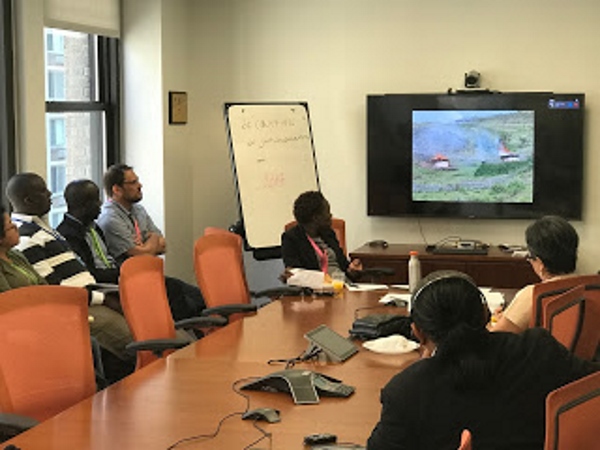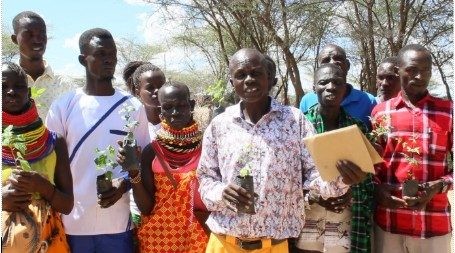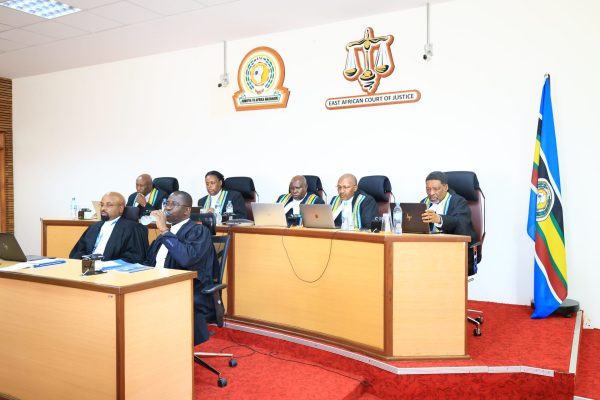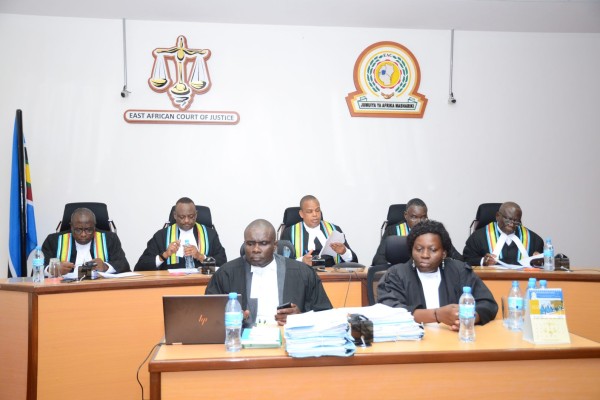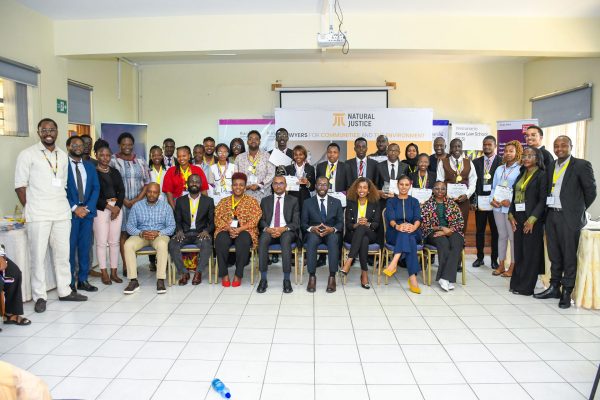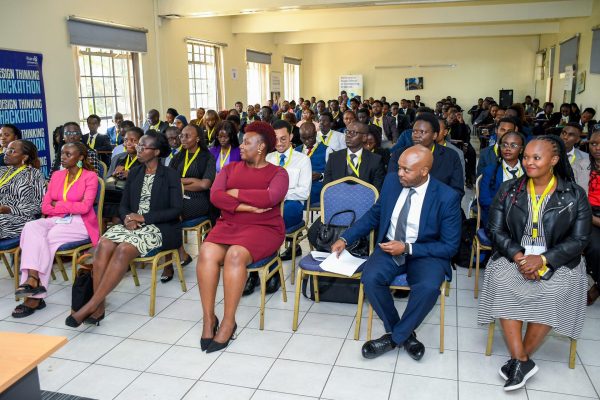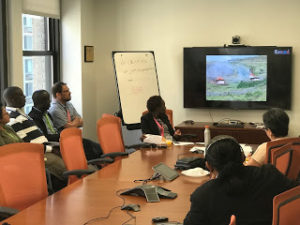
A side event by Natural Justice and the Forest Peoples Programme during this year’s UN Permanent Forum on Indigenous Issues called “Too little and too late? Realising the Rights of Indigenous People in Conservation” took place on Friday, 28 April, 2017, with the aim of pushing for a renewed focus on the issues surrounding conservation and human rights.
While over the last few years we have seen an increasing recognition of the crucial role indigenous people play in conservation, highlighting the linkages between community rights to land and resources and biological diversity, the conservation sector continues to be accused of infringing the rights of indigenous peoples and local communities.
From the first denials of access of Native Americans to Yellowstone National Park in the 1860s to the on-going plight of the Sengwer community in Kenya (see photo above), there are many documented cases of indigenous peoples being evicted and subjugated in the name of conservation. A 2016 report on the matter by UN Special Rapporteur on the Rights of Indigenous Peoples, Vicky Tauli-Corpuz (see photo left), states that worldwide, 50% of Protected Areas were established on the territories and lands of Indigenous Peoples. This incidence is as high as 90% in Central America.
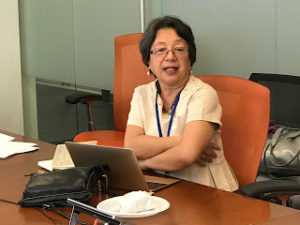
Conservation interventions can impact on indigenous and other local communities in a number of ways, including: denial to the right to self determination, denial of free, prior and informed consent; lack of engagement by outsiders with indigenous institutions; eviction; unjust resettlement; destruction of property and livelihoods; denial of access and use of natural resources; intimidation and physical harm; and exploitative employment.
Recently, increasing attention has been paid to these kinds of infringements, including by the reports by two Special Rapporteurs, namely the aforementioned Ms Victoria Tauli-Corpuz, and Professor John Knox, Special Rapporteur on Human Rights and the Environment.
It should be noted that these injustices have not been ignored by the conservation sector. Indeed, the adoption of the Durban Accord at the World Parks Congress in 2003 marked a shift as the conservation movement adopted a new paradigm of ‘People and Parks’ which recognised the central role of indigenous peoples in the conservation and sustainable use of biological diversity.
On top of that the conservation community has adopted some principles and policies recognising its legacy and the on-going human rights violations in many protected areas. These include:
- IUCN initiated the Whakatane Mechanism in 2011 to enable visits to assess, address and redress injustices carried out in the name of conservation against indigenous peoples and local communities, on the ground.
- A number of the larger conservation NGOs have established the Conservation Initiative on Human Rights.
- Several conservation NGOs have set up indigenous advisory groups or working groups on Human Rights
However, in spite of this improved rhetoric, implementation on the ground continues to be problematic, with on-going cases of human rights violations in the name of conservation.
The aim of the side-event was to build momentum towards a new focus on conservation and human rights by linking recent UN reports and recommendations with local experiences and proposals for ways forwards.
Speakers included Ms Victoria Tauli-Corpuz, who spoke about the recommendations coming out of her report on the matter; Ms Milka Chepkorir, who spoke about the plight of the Sengwer community in Kenya, which is suffering abuses at the hands of the Kenya Forest Service; Mr Onel Maserdule, who spoke about conflicts between indigenous peoples and conservation initiatives in Panana; and Ms Tuhi Martukaw, from the Kasavakan Community, who added additional examples of such conflict from Taiwan (ROC).
Before opening up the floor for discussion, Milka Chepkorir also read the recommendations that were included in a formal submission called “Joint Submission on the Lack of implementation of the UN Declaration on the Rights of Indigenous Peoples in the context of conservation policies and practices” to the Forum during its first week of deliberations. The submission was endorsed by a range of indigenous peoples organisations and their supporting organisations.
The recommendations are as follows:
We call on the Permanent Forum to:
a) Take the lead in convening an Expert Group Meeting on Conservation and Human Rights in 2018, in collaboration with the UN Expert Mechanism on the Rights of Indigenous Peoples and the UN Special Rapporteur on the Rights of Indigenous Peoples, to further explore options for UN action to promote and protect the rights of indigenous peoples in the context of conservation activities, recognising that conservation science makes very clear that securing indigenous peoples’ collective tenure rights is the surest basis for effective, as well as just, conservation;
b) Develop an Expert Report on Conservation and the Rights of Indigenous Peoples to follow-up the recommendations and reports of the UN Special Rapporteur on the Rights of Indigenous Peoples and the UN Special Rapporteur on Environment and Human Rights and to inform the work of relevant UN agencies and conventions;
c) Pursue its recommendations to key global conservation organisations, with a focus on the members of the Conservation Initiative on Human Rights, and to request CIHR members to report in 2018 to the Forum on the implementation of the Initiative;
d) Urge the International Union for the Conservation of Nature (IUCN) to establish a joint Task Force on Conservation and Human Rights to work with indigenous peoples’ organisations to clearly articulate the rights of indigenous peoples in the context of conservation initiatives, and to continue to promote grievance mechanisms and avenues to redress in the context of conservation action, including the Whakatane Mechanism (in turn, contributing to implementation of IUCN Resolution 6.072)[1];
e) Urge International Financial Institutions, the European Commission, the Global Environment Facility and other donors to apply the strongest possible safeguards in the financing of conservation programmes and projects, including climate change mitigation and adaptation actions, and to recognise collective tenure as the most effective basis for effective conservation and sustainable use of natural resources;
We also call the attention of the Permanent Forum to the following specific case and associated recommendation:
f) Recommend to the European Union and the Government of Kenya that financing and planned actions in the Cherangany Hills in western Kenya be contingent on the recognition and formal protection of the rights of the forest indigenous peoples, including the Ogiek and the Sengwer, to their lands, as provided for under the Community Land Act, 2016, and the 2010 Constitution, especially Article 63 (2) d ii.

